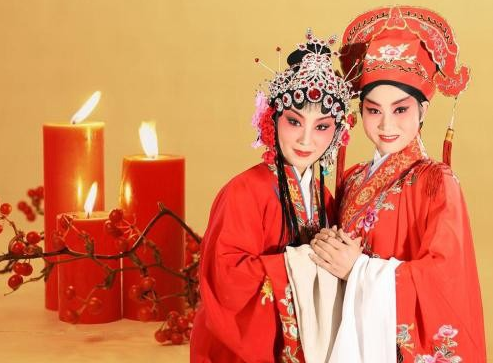Qin Opera
发布时间:2021-07-22 14:33:42 | 来源:chinadaily.com.cn | 作者: | 责任编辑:闫景臻
Post of Qin Opera. [Photo/xinhuanet.com]
Qin Opera is popular in such places as Shaanxi, Gansu, Ningxia, Qinghai, Xinjiang Uygur autonomous region and Tibet autonomous region. It originated in the folk tunes and the tumbrel opera of the Song (960-1279), Jin (1115-1234) and Yuan (1271-1368) dynasties. It took its shape during the reign of Ming Dynasty (1368-1644) Emperor Wangli, and so has a history of over 500 years.
The area around Shaanxi and Gansu was within the territory of the Kingdom Qin, hence the name “Qin Opera” or “Western Qin Opera”. Locals usually call it luantan (“strum”) or guanguangzi (guangguang puppet show).
Sometimes the Qin Opera may sound vigorous and deep, tragic and inspiring, generous and ardent, evoking vast expanses under gray heavens in the northwestern wilderness. At other times it may become soft and sentimental, delicate and gentle, light and lively. It is therefore regarded as the most representative ancient local drama in China.